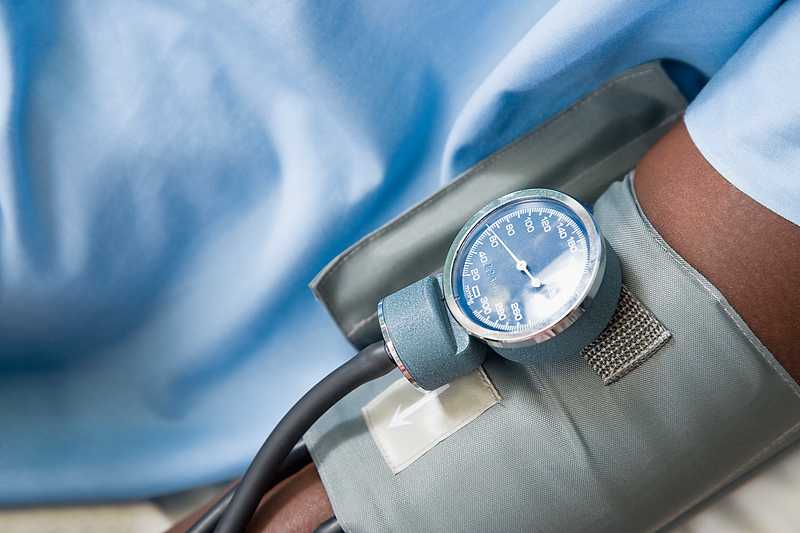Conditions That Increase Risk for Stroke

High blood pressure is a leading cause of stroke. It occurs when the pressure of the blood in the arteries is too high.
Many common medical conditions can increase your chances of having a stroke. Work with your health care team to control your risk.
Previous Stroke or Transient Ischemic Attack
If you have already had a stroke or a transient ischemic attack (TIA), also known as a "mini-stroke," your chances of having another stroke are higher.
High Blood Pressure
High blood pressure is a leading cause of stroke. It occurs when the pressure of the blood in your arteries and other blood vessels is too high.
There are often no symptoms of high blood pressure. Get your blood pressure checked often. If you have high blood pressure, lowering your blood pressure through lifestyle changes or medicine can also lower your risk for stroke.
High Cholesterol
Cholesterol is a waxy, fat-like substance made by the liver or found in certain foods. Your liver makes enough for your body’s needs, but we often get more cholesterol from the foods we eat. If we take in more cholesterol than the body can use, the extra cholesterol can build up in the arteries, including those of the brain. This can lead to narrowing of the arteries, stroke, and other problems.
A blood test can tell your doctor if you have high levels of cholesterol and triglycerides (a related kind of fat) in your blood.
Heart Disease
Lower Your Risk for Stroke
Learn the ABCS of stroke prevention:
Aspirin: Aspirin may help lower your risk for stroke.
Blood Pressure: Control your blood pressure.
Cholesterol: Control your cholesterol.
Smoking: Quit smoking or don’t start.
Learn more about the ABCS at the Million Hearts® website.
Common heart disorders can increase your risk for stroke. For example, coronary artery disease increases your risk for stroke, because plaque builds up in the arteries and blocks the flow of oxygen-rich blood to the brain. Other heart conditions, such as heart valve defects, irregular heartbeat (including atrial fibrillation), and enlarged heart chambers, can cause blood clots that may break loose and cause a stroke.
Diabetes
Diabetes increases your risk for stroke. Your body needs glucose (sugar) for energy. Insulin is a hormone made in the pancreas that helps move glucose from the food you eat to your body's cells. If you have diabetes, your body doesn’t make enough insulin, can’t use its own insulin as well as it should, or both.
Diabetes causes sugars to build up in the blood and prevent oxygen and nutrients from getting to the various parts of your body, including your brain. High blood pressure is also common in people with diabetes. High blood pressure is the leading cause of stroke and is the main cause for increased risk of stroke among people with diabetes.1
Talk to your doctor about ways to keep diabetes under control.
Sickle Cell Disease
Sickle cell disease is a blood disorder linked to ischemic stroke that affects mainly black and Hispanic children. The disease causes some red blood cells to form an abnormal sickle shape. A stroke can happen if sickle cells get stuck in a blood vessel and block the flow of blood to the brain.
Learn more about sickle cell disease at the National Heart, Lung, and Blood Institute.
Learn what steps you can take to prevent stroke.
More Information
From CDC:
- Stroke [PDF–548K]
- Know the Facts About Stroke [PDF–264K]
- Know the Signs and Symptoms of Stroke [PDF–268K]
- Women and Stroke [PDF–268K]
- Men and Stroke [PDF–248K]
- African-American Women and Stroke [PDF–910K]
- African-American Men and Stroke [PDF–478K]
- Hispanic Women and Stroke [PDF–327K] – Las Mujeres Hispanas y Los Accidentes Cerebrovasculares [PDF–223]
- Hispanic Men and Stroke [PDF–340K] – Los Hombres Hispanos y Los Accidentes Cerebrovasculares [PDF–221]
- Hispanics and Stroke [PDF–217K] – Las Personas Hispanas y Los Accidentes Cerebrovasculares [PDF–223]
From other organizations:
- What You Need to Know About Stroke–National Institute of Neurological Disorders and Stroke
- Know Stroke: Know the Signs. Act in Time.–National Institutes of Health
- Mind Your Risks–National Institutes of Health
- Stroke–Medline Plus
- Brain Health Resource Page–American Heart Association/American Stroke Association
- Internet Stroke Center
- Stroke warning signs quiz (English and Spanish)–American Heart Association/American Stroke Association
Reference
- National Institute of Neurological Disorders and Stroke. (2009). Stroke: challenges, progress, and promise. Bethesda, MD: National Institutes of Health.
- Page last reviewed: January 17, 2017
- Page last updated: January 17, 2017
- Content source:



 ShareCompartir
ShareCompartir